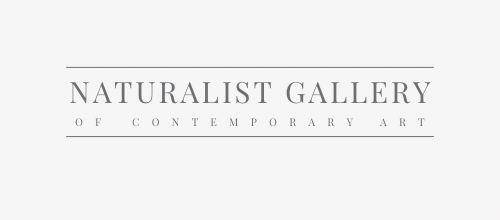Influence of Technology on the Art World

Electronic Superhighway (1995) by Nam June Paik
Technological advances have dramatically transformed the art world, revolutionizing how art is created, shared, and experienced. Through digital platforms, artists can now deploy cutting-edge techniques that were once unimaginable, broadening the scope of their creative expression. These platforms also facilitate global exposure and interaction, allowing artists and audiences from diverse geographical and cultural backgrounds to connect and collaborate effortlessly. This digital revolution not only democratizes art consumption but also fosters a global community of creatives who can influence and inspire one another across traditional boundaries.
Cultural Exchange and Diffusion in the Global Art World

The Weather Project (2003) Olafur Eliasson
Globalization has significantly enhanced the exchange of cultural practices within the art world, leading to a rich diversity of artistic expressions. This intermingling of cultures not only enriches the global art scene with a variety of perspectives and techniques but also challenges the traditional dominance of Western modernist traditions. As a result, there is a growing appreciation and incorporation of art forms that reflect a broader spectrum of histories and contexts, promoting a more inclusive and comprehensive understanding of what constitutes art in the modern world.
Impact on Art Markets and Networks

For the Love of God (2007) Damien Hirst
The globalization of art has significantly expanded global networks, transforming the art market through events like biennials and art fairs. These platforms have not only intensified competition among artists and galleries but also opened new opportunities for international exposure and recognition. Moreover, globalization has shifted collecting trends, with emerging markets now playing a crucial role in the contemporary art scene. This shift brings fresh perspectives and energies into the art market, influencing both the valuation of art and the dynamics of art collection.
The Role of Naturalist Gallery in Global Art

I'm Afraid of Dying (2012) Jeremy Davis
The Naturalist Gallery of Contemporary Art actively embraces its role in the global art community by showcasing a diverse range established and emerging international artists. This approach not only enhances cultural dialogue but also connects local art scenes to broader global trends. Through these activities, the gallery fosters a rich exchange of artistic ideas, positioning itself as a pivotal space where different cultural perspectives meet, interact, and influence one another, thereby enriching the global art narrative.
Challenges and Opportunities in the Globalized Art World

Balloon Dog (1994-2000) Jeff Koons
Globalization offers significant opportunities for artists to reach international audiences, enhancing their visibility and influence across the globe. However, this expansion also introduces challenges such as market saturation, where the increased number of artists vying for attention can dilute individual impact. Additionally, artists must navigate complex global dynamics, including varying cultural expectations and regulatory environments. Effective engagement with these global conditions requires adaptability and strategic planning to leverage opportunities and mitigate potential pitfalls in the global art market.

The World Atlas of Artificial Night Sky Brightness by Félix Pharand-Deschênes
Globalization has irreversibly transformed the art world, catalyzing both creative innovation and cultural exchange. This global interconnectivity has opened new economic doors, presenting artists and galleries with unprecedented opportunities. However, it also introduces complex challenges, such as market saturation and the need to navigate diverse cultural dynamics. The evolution driven by globalization continues to influence how art is created, consumed, and valued, shaping the future landscape of the art world.
Learn more About Naturalist Gallery of Contemporary Art.
You may also find the following articles helpful:
The 14 Essential Artists of Impressionism
Expressionism: 20 Iconic Paintings & Their Artists
Renaissance Art: Origins, Influences, and Key Figures
Classical Art Movement: Exploring the History, Artists, and Artworks
Figurative Art: Understanding, Collecting, and Appreciating the Style
Daily Routines of Famous Artists: Learn from the Masters
Top 12 Controversial Artworks That Changed Art History
Tracing the History of Humans and Art
12 Central Fine Art Movements







